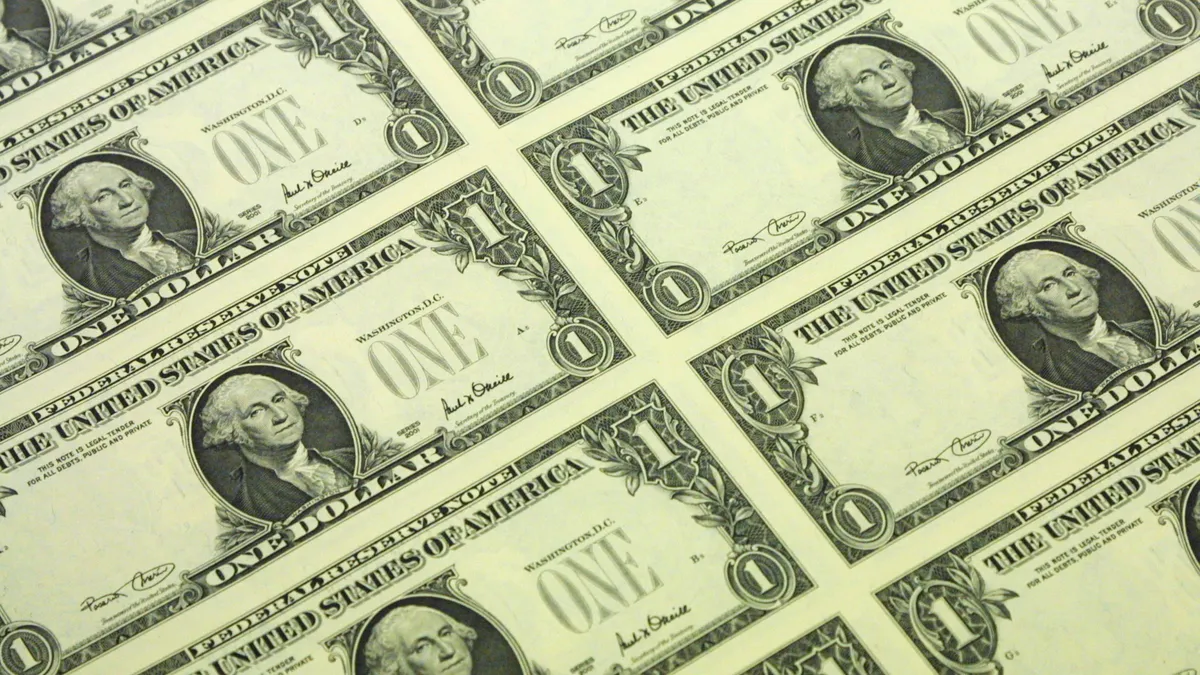Dive Brief:
- Nearly three out of four Fortune 500 CEOs expect that the Federal Reserve will fail to quickly curb the worst inflation in 40 years under its currently expected pace for increases in the main interest rate, according to a survey by the Conference Board and Business Council.
- Rising wages and supply chain bottlenecks will continue to spur rapid price gains, the CEOs said. Only 21% of chief executives predict inflation will gradually slow under the current predictions for Fed tightening.
- Within the next 12 months, 72% of CEOs plan to pass along to consumers the rising costs of transportation and labor, with 27% planning to do so within six months, according to results of the survey conducted last month.
Dive Insight:
CFOs confront a major challenge to budgeting, forecasting and risk management as prices soar.
Inflation surged last month to the highest level since 1982, with the consumer price index (CPI) increasing at a 7.5% annual rate, the Labor Department said Thursday. Inflation has exceeded 5% for eight months. The producer price index, a measure of what suppliers charge businesses, rocketed 9.7% last year.
“CEOs are preparing for supply constraints and wage inflation to persist well into this year and potentially beyond,” according Roger Ferguson, vice chair of the Business Council and former Fed vice chair. “While interest-rate hikes should help dampen inflation, few are expecting prices to stabilize rapidly.”
A tight labor and rising wages have stoked concerns that prices and compensation increases will begin to reinforce one another in a wage-price spiral.
Companies competing for workers pushed up average hourly earnings 5.7% in January compared with 12 months before, the Labor Department said on Feb. 4.
During the next 12 months, 85% of CEOs expect to increase wages by 3% or more, an increase from 79% during the prior survey at the start of the fourth quarter, the Conference Board and Business Council found.
Fed officials began to withdraw record stimulus late last year. In mid-December they penciled in three, quarter-point increases in the fed funds rate for 2022, with the first as early as the next meeting of policymakers on March 15-16.
Since December private sector forecasters have predicted the central bank will need to tighten more than three times this year.
“Like most forecasters, we continue to expect inflation to decline over the course of the year,” Fed Chair Jerome Powell said on Jan. 26, while acknowledging that price gains had accelerated since the December meeting of policymakers.
“We will use our tools both to support the economy and a strong labor market and to prevent higher inflation from becoming entrenched,” he said at a press conference. “We will remain attentive to risks, including the risk that high inflation is more persistent than expected."
In response to the newest inflation reading, the yield on the benchmark 10-year Treasury note breached 2% on Thursday for the first time since mid-2019.
Half of CEOs expect the economy to improve during the next six months, a decline from 61% during the prior survey at the start of the fourth quarter, the Conference Board and Business Council found in the Jan. 17-31 survey of 133 CEOs. The proportion of CEOs who expect the economy to worsen rose to 23% from 13%.












